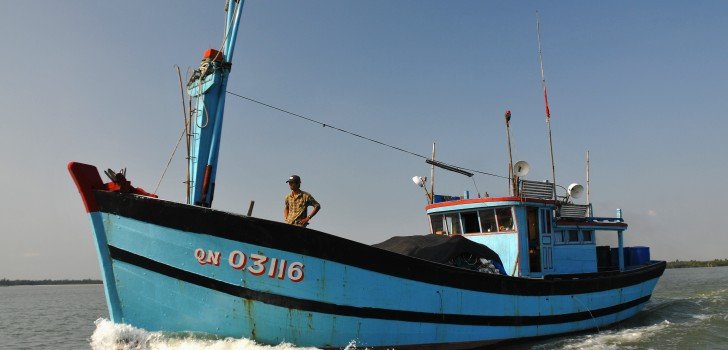Despite better fishing practices, Maine cod are still largely dying off because of climate change.
The Gulf of Maine has experienced warmer waters, and the result is that fishermen are failing to meet their quotas.
Chief scientific officer of the Gulf of Maine Research Institute Andrew Pershing said, “We suspect that there may be other species, in the northeast and elsewhere, that are being impacted by warming waters in a similar way.”
In the northeast coast of the North America, Atlantic cod have been chronically overfished in the past. Eventually, their populations crashed, and fisheries had to institute major cuts to their allowed fishing amounts.
Despite these practices, the cod population in the area has continued to decline. The Gulf of Maine has been strongly affected by climate change, and there is reason to believe that this is adversely affecting the cod population.
According to research, the Gulf of Maine is warming by 0.4 degrees Fahrenheit every year. This is 99.9% faster than that of most other oceans. This is caused by the fact that the Gulf Stream is moving north as winds have changed, leading to warmer waters reaching the area.
Additionally, Arctic warming is also affecting the Gulf Stream because melting sea ice releases cold freshwater into the North Atlantic, slowing down key ocean currents.
Because of the warmer waters, fewer cod are surviving to reach adulthood. With less adult cod, birthing rates are down, leading to declines in the population.
According to Pershing, cod fisheries must start taking temperature into consideration when determining fishing quotas. But even with the reduced quotas, the warming of the Gulf of Maine makes recovering the cod population a serious challenge.
However, people who consume cod in the United States shouldn’t be worried. Most cod that is used for consumption comes from waters near Alaska, Iceland or Norway, where cod populations are thriving.
Still, the problem in the Gulf of Maine is getting worse.
“We are seeing a remarkable change in this ecosystem, and we need to figure out the short and long term impacts on the species we care about,” Pershing said.
Stay Connected